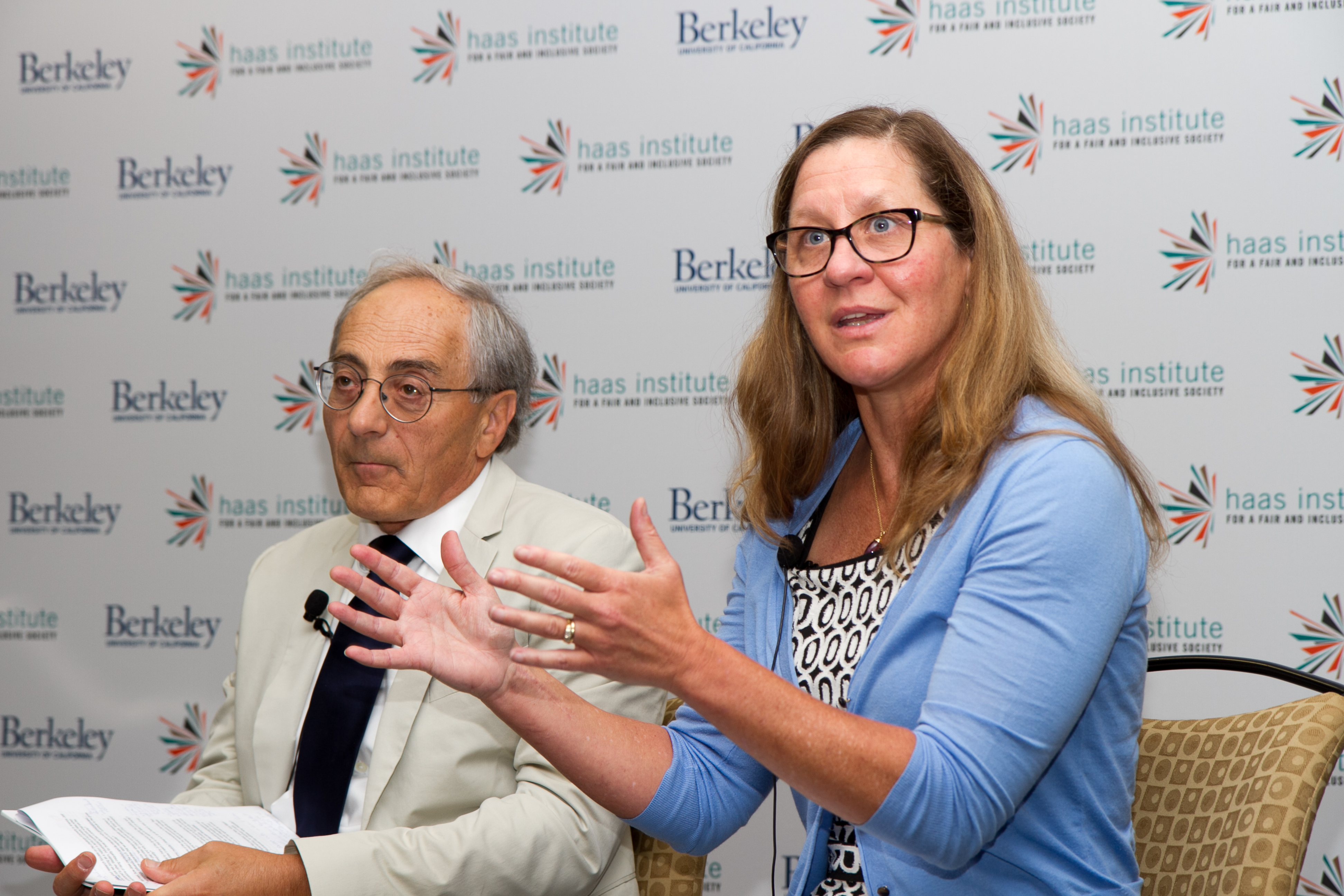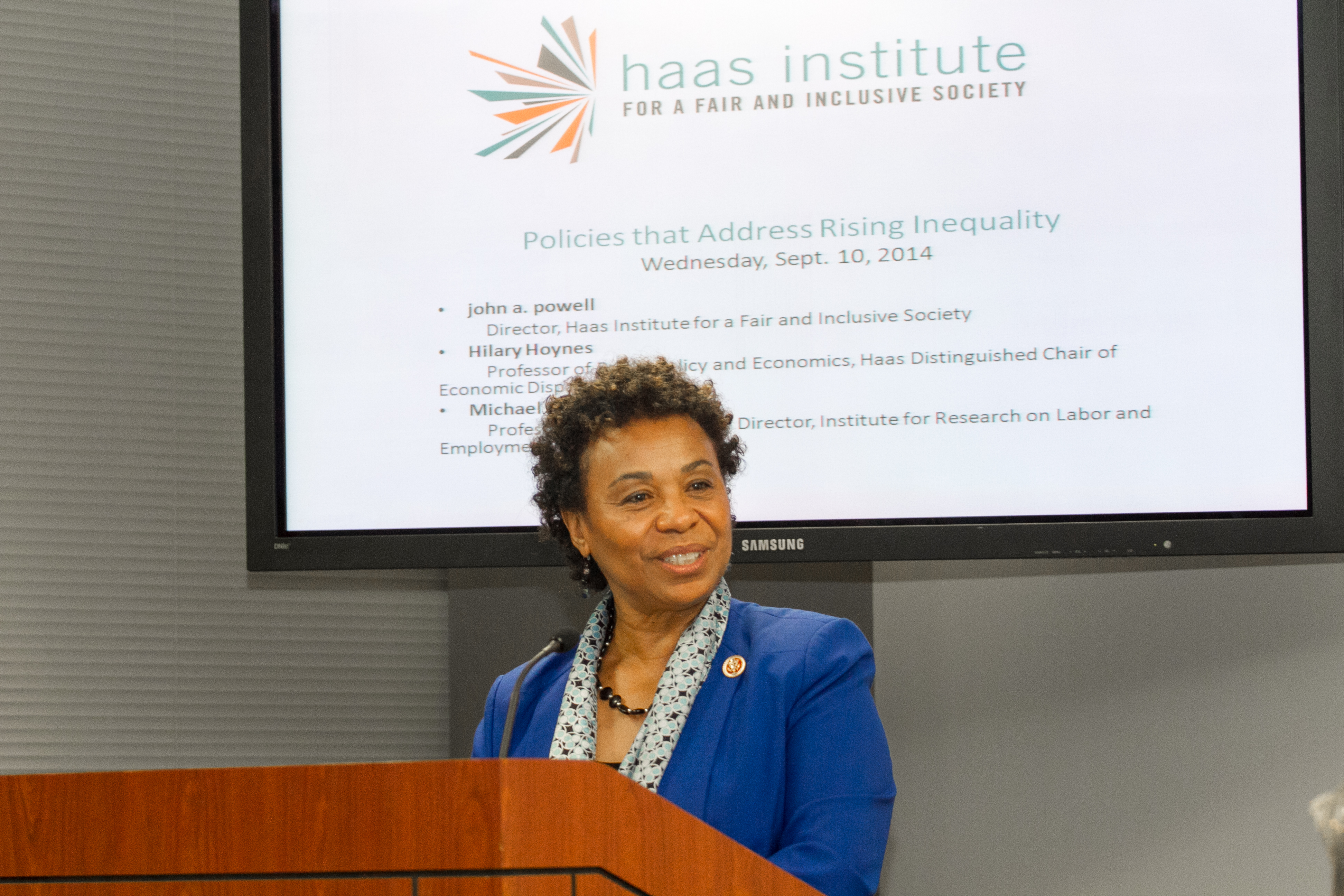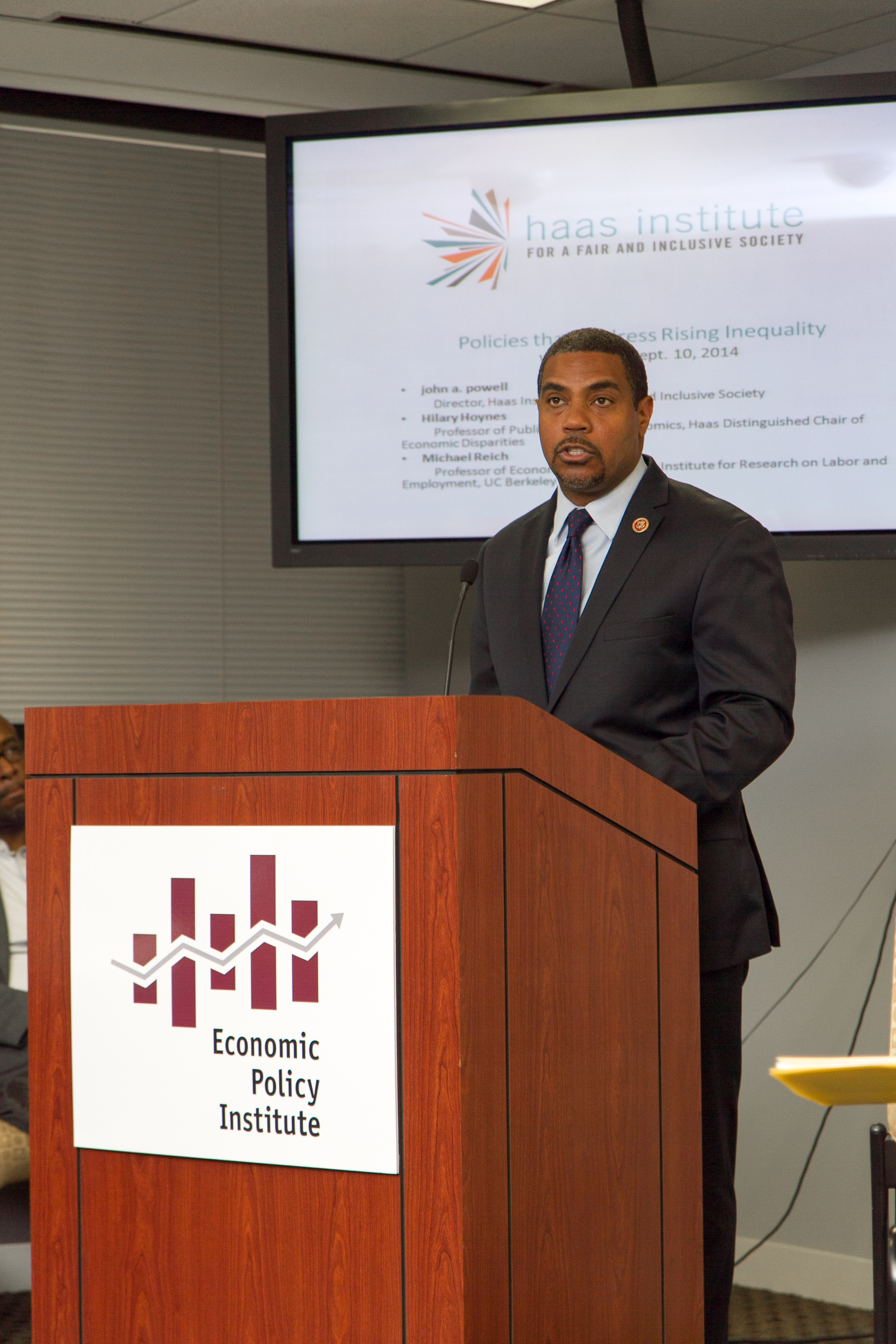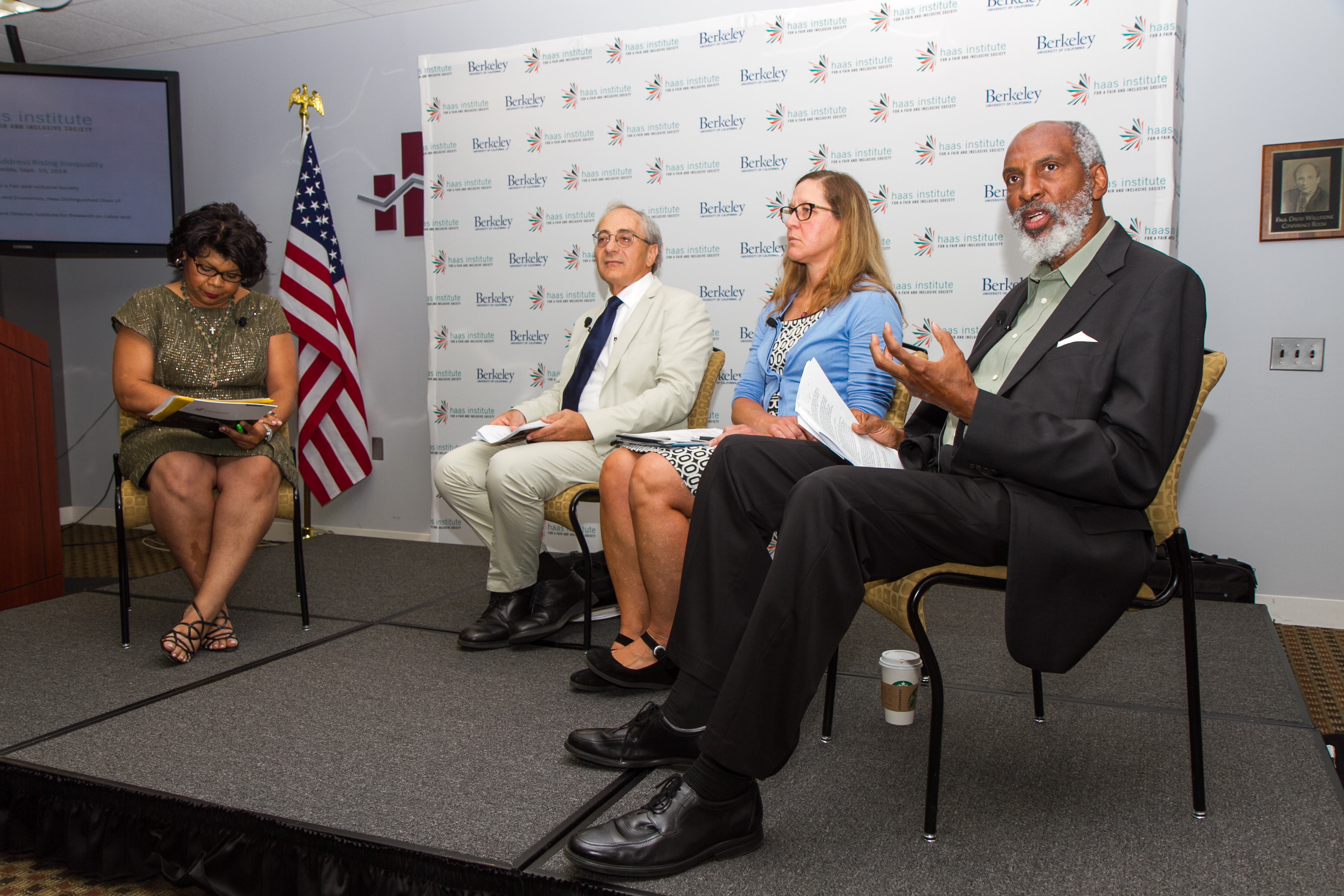
by Rasheed Shabazz
WASHINGTON, DC–UC Berkeley professors joined policymakers on September 10 at the Economic Policy Institute to discuss policy solutions to reduce economic inequality in America.
The policy prescriptions are outlined in “The Path to a Fair and Inclusive Society: Policies that Address Rising Inequality,” a new policy brief from the Haas Institute for a Fair and Inclusive Society at UC Berkeley promising a proven roadmap to end inequality.
The brief highlights six solutions to extreme inequality, including:
· increasing the minimum wage
· expand the Earned Income Tax
· build assets for working families
· investing in early childhood education
· making tax code more progressive
· ending racial segregation

California Congresswoman Barbara Lee was one of two members of Congress who provided a keynote introduction at the event. In her address, Congresswoman Lee noted, “For far too many years, the American dream of a decent job and a better life for one’s children has become a distant memory pushed out of reach by failed policies and misplaced priorities.”
 The Haas Institute’s brief “shows just how entrenched the barriers to economic opportunity have become over the last several decades,” she said. “It should really be required reading for every member of Congress.”
The Haas Institute’s brief “shows just how entrenched the barriers to economic opportunity have become over the last several decades,” she said. “It should really be required reading for every member of Congress.”
Congressman Steven Horsford of Nevada spoke next, thanking the Haas Institute for bringing research to bear on issue of policy.
“We have a problem in America,” Representative Horsford said. “That problem is the toxic mix of extreme economic inequality in an era of great wealth.”
He shared his personal story growing up poor and how through both hard work and programs that provided opportunity, he has been able to avoid becoming a statistic.
“I made it because people gave me a hand up,” Horsford said. He called himself a “defender of programs that enrich the lives of millions of Americans,” referring to government assistance that helped provide food for his family to eat and disability assistance within Social Security that provided nursing care for his grandmother, the only adult caretaker in his family.

Faculty Experts Weigh In
Haas Institute Director john a. powell began the discussion, sharing the mission of the Haas Institute doing “research that actually affects real people.” He elaborated on the topic of inequality and its impact on the American people.
“The idea of equality is enshrined in the U.S. Declaration of Independence,” powell said.
The United States has prided itself, in theory, as the land of opportunity, or equality of opportunity. However, due to rising poverty, a shrinking middle class, and growing inequality, this is not the case.
“If we continue down this road, it’s not just hurting blacks, Latinos, Asians, Native Americans, or poor whites, it’s hurting the entire country,” powell said. “It’s undermining our democracy, undermining our economy, and undermining American ideals. This extreme inequality is retarding the growth and sustainability of the world.”
Concentrated Wealth and Persistent Poverty
UC Berkeley Economics Professor Hilary Hoynes, chair of the Haas Economic Disparities cluster, outlined inequality as the gap between the wealthiest, or at the top of the wealth and income distribution, and those as the bottom.
For decades, Hoynes said, wealth has become concentrated among those at the top, while those at the bottom cannot meet their basic needs. She noted that the United States has higher poverty rates among children than distressed states like Greece and Spain.
“The U.S. has a high rate of poverty,” Hoynes said. “But this is not an inevitability.” Comparing U.S. policies to other countries, Hoynes noted that policies that are successful at reducing poverty can be identified. Also, current policies and programs in the U.S. that are successful can be improved upon or expanded.
Raise the Wage
She added that arguments that programs designed to reduce poverty do not work, critics often do not factor in the loss of real wages for low-income workers.
Professor Michael Reich, an expert on minimum wage and Director of the UC Berkeley’s Institute for Research on Labor and Employment highlighted the reasons why wages have stop growing for those at the bottom.
It’s “the decline in unionization, decline in the minimum wage, and tax cuts at top,” Reich said. “When you lower tax rate at the top, greed sets in,” Reich said. Today, low-wage workers in fields like fast food have more education and are likely to be older. The minimum wage used to go up at the same rate as median wages, but that is not longer the case, Reich said.
One of the brief’s recommendations is raising the federal minimum wage.
Inequality and Racial, Economic Segregation
Speaking to the impact of race and segregation on economic inequality, powell pointed to the historic legacy of residential segregation and the disproportionate impact of the recent housing and credit crises on Black and Latino communities.
He noted how housing segregation also impacts which schools people attend and how inequality impacts the quality of those schools and the opportunities available to those children and young adults.
“We can’t leave large amounts of people behind,” powell said. “We need a strategy that actually lifts all of us up. I like the idea of a rising tide lifting all boats. But we need to recognize that some people don’t have a boat.”
Focusing on the brief’s recommendations, Hoynes–whose research was synthesized with other faculty experts to produce the brief–also explained that none of these policies work solely by themselves.
The policy brief is the first brief produced by the Haas Institute. There are seven total clusters comprised of almost ten researchers from UC Berkeley.
The Economic Policy Institute hosted the event.
For more information on the Center for Global Policy Solutions, click here.
Photos by Simona Combi for the Center for Global Policy Solutions.

